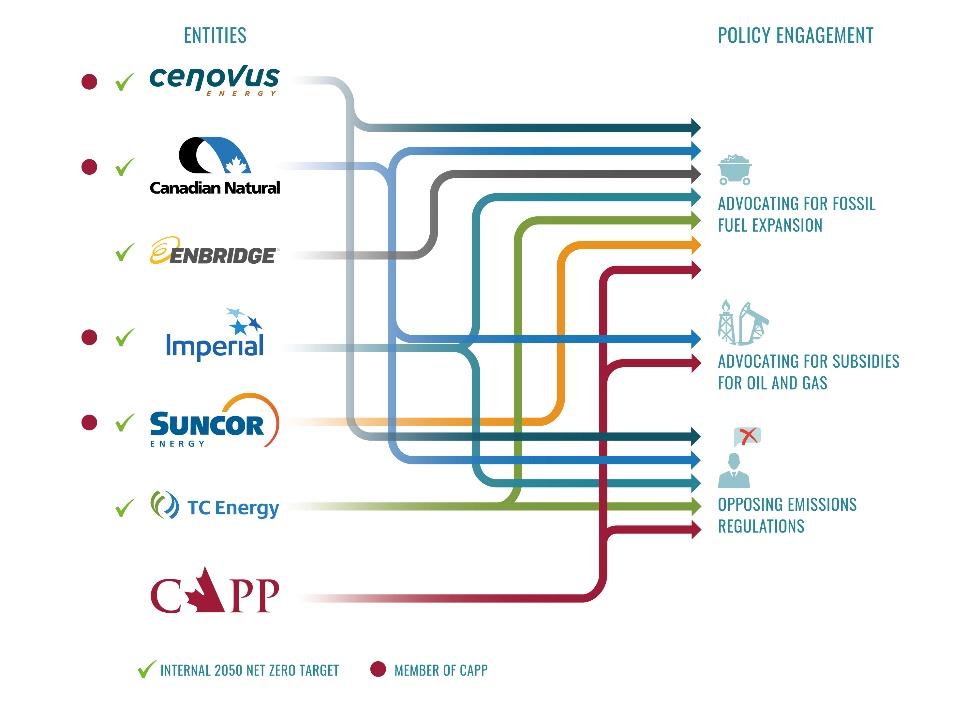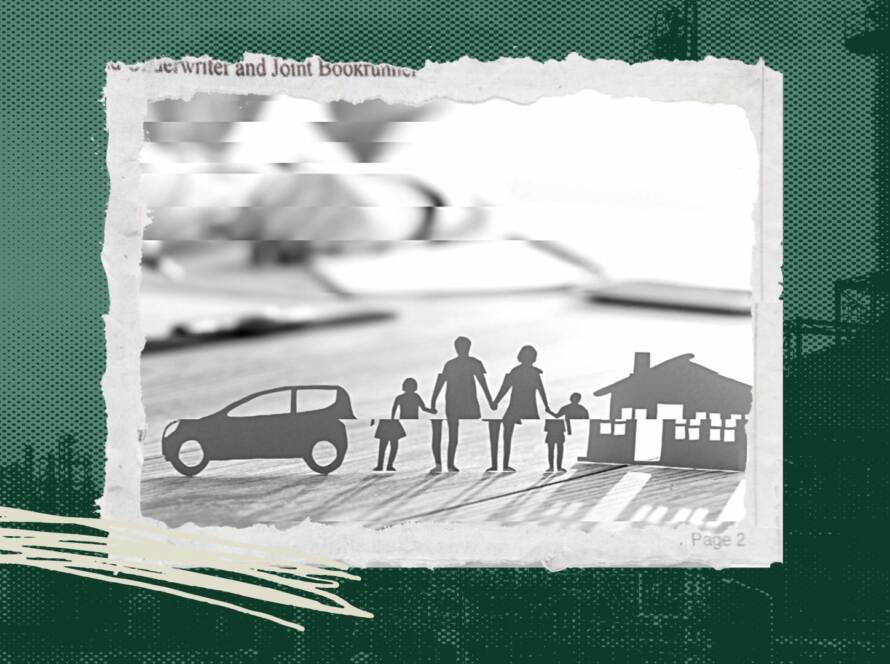InfluenceMap, a research partner to Climate Action 100+, just released a major report on climate lobbying by the Canadian oil and gas industry. It concludes that while most Canadian oil and gas companies state public support for climate action, they nevertheless continue to lobby against government actions to limit global warming. The report calls this disconnect “what appears to be a text-book case of net-zero greenwashing.”
With this inconsistency in mind, we will soon release two shareholder resolutions focused on lobbying and political risk this year. We hope these resolutions will create accountability for these companies and engage investors who want to see these companies walk their talk and support government action that helps them meet their own net zero targets.
For context, there is lobbying by companies that helps ensure well-informed policies and then there is lobbying that is narrowly self-interested and comes at the expense of our overall goals to dramatically reduce greenhouse gas emissions. Historically, the oil and gas sector has taken the narrow, self-interested approach and actively resisted climate action.
Some may be asking: “Hasn’t that changed for these companies as we’ve seen the television ads that show them supporting Canada’s Paris commitment through actions they’re taking to reduce their emissions?” But InfluenceMap’s report makes it clear the companies are using public messaging to give the impression of supporting net zero and meeting Canada’s Paris commitment yet are failing to act in a way that actually delivers on that messaging. In practice these companies contradict their stated support by still promoting the growth of greenhouse gas emissions from their new oil and gas production and infrastructure, failing to support 1.5C net zero policy, and actively promote misleading narratives to support their own deeply flawed version of net zero and climate action.

The International Energy Agency and IPCC have clearly stated that achieving a 1.5°C net zero target requires no new fossil fuel – it is impossible to achieve net zero and meet Canada’s Paris commitment if we continue to increase greenhouse gas emissions from increased production. Yet InfluenceMap found these companies consistently advocate for new oil and gas production and new infrastructure.
Take the industry’s response to the Canadian government’s announced 2022 Oil and Gas Emissions Cap. These companies have push backed against this policy by bringing forward solutions that don’t bring the sector’s emissions anywhere near alignment with 1.5C net zero targets.
InfluenceMap has also highlighted the lobbying and advocacy that is promoting misleading narratives. Despite the reality that the oilsands has some of the highest greenhouse gas emissions in the world, the industry has been promoting a concept that more Canadian oil is desirable for meeting the world’s climate goals. That narrative has also been applied to natural gas despite the reality that natural gas is not a climate solution.
Recently, as countries respond to the price and supply shock from the tragic war in Ukrainian by doubling efforts to reduce oil and gas use and switch to low carbon forms of energy, these Canadian companies have instead promoted the increased production of Canadian fossil fuels as a solution to this crisis.
Lost in all of this lobbying is the reality that this industry has yet to invest in available climate solutions at the scale needed to align with achieving 1.5C net zero targets. Investment is critically needed now to enable reduction in emissions between now and 2030 to get the sector on a pathway to a 1.5C net zero target.
InfluenceMap’s report clearly identifies the inconsistency between Canadian oil and gas companies’ public positioning and their activities that undermine climate action. Investors need to engage these companies to push them to move beyond empty rhetoric on climate change to real climate action to avoid the existential risk to their current business model. Support for relevant shareholder resolutions in this year’s AGM season is one way to hold them accountable.



